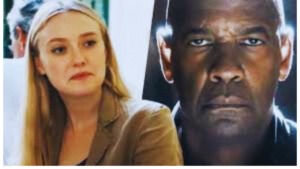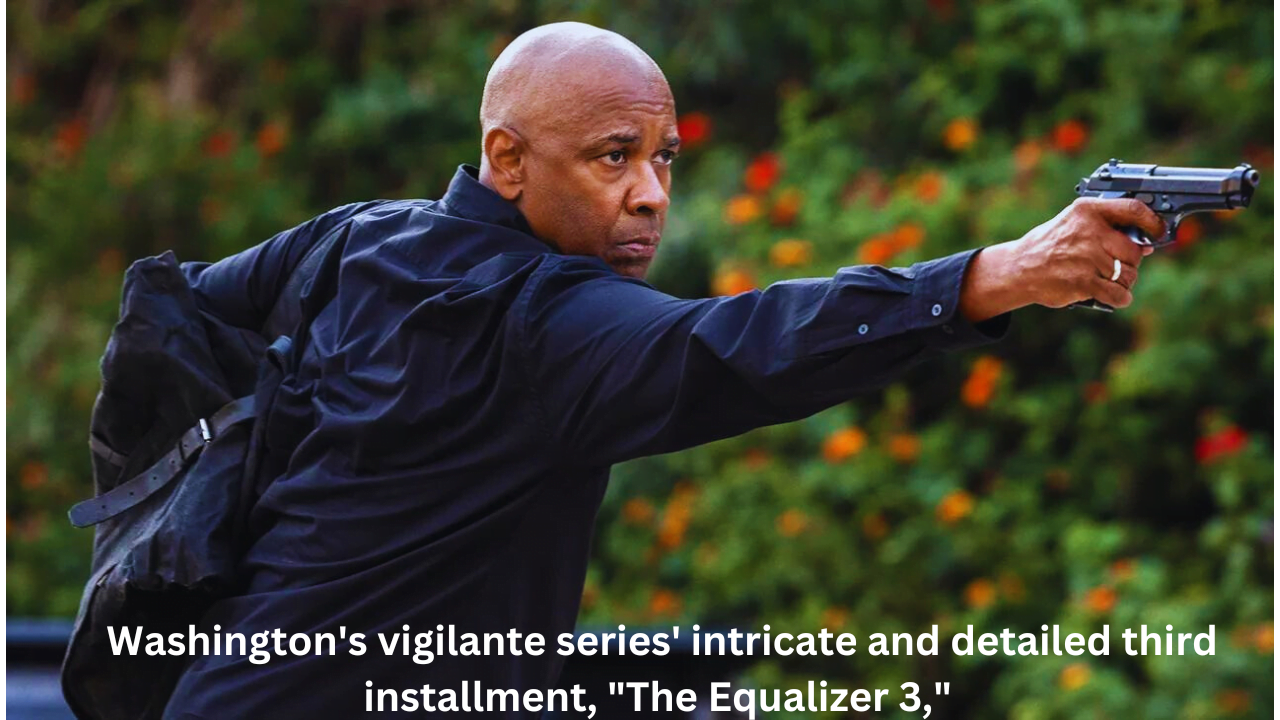Washington’s vigilante series’ intricate and detailed third installment, “The Equalizer 3,” directed by Antoine Fuqua, isn’t among the actor’s top works. It wouldn’t rank in their top ten. But it demonstrates Washington’s outstanding on-screen talent without a doubt.
You might assume that this would lead to the violent action scenes in the movie, but it doesn’t. These are pictures of Washington quietly enjoying a cup of tea at a sidewalk cafe or exploring a Sicilian town. The thrill of watching Denzel grin, grimace, and smile throughout the leisurely scenes mixed with murder is what drives this film more than its plot mechanics.
In this regard, the “Equalizer 3” films—of which the third is unquestionably the best among the many in the series—remind me of great Walter Matthau thrillers like “Charlie Varrick” and “Hopscotch”—movies about expressive old folks. Those with rigid habits who still have a lot of tricks up their sleeves. (Washington, who is now 68, also replaced Matthau in the remake of “Pelham One Two Three.”)
Old performers still demonstrate their unique talents in action thrillers nowadays in spades. If you hurl a stone at a movie theater, you might run across Tom Cruise, Harrison Ford, or Liam Neeson and incur their fury. Despite being a respectable overall entry in the genre, “Equalizer 3” is at the worst possible end of the range.

However, surprisingly, neither the furious and weird battle scenes nor the film’s flimsy tension are much of a selling factor. A trail of dead bodies leads through the main house of a Sicilian vineyard at the start of the movie, which was scripted by Richard Wenk. Robert McCall (Washington) is sitting calmly in the wine cellar when he says, “They won’t let me in, so…”
The movie “The Equalizer 3” is based on a TV show from the 1980s about a retired Secret Service agent who spends his time trying to balance the scales of justice for the people he routinely encounters. The third movie in the series also has a nice episodic feel to it.
The most lethal guy in the world was first presented to us in The Equalizer (2014), a trained assassin who thought he’d be a wonderful life coach. Denzel Washington portrays Robert McCall, a former intelligence officer, with amazing gravitas. McCall has the ability to simultaneously shoot Russian mobsters off your back and kindly persuade you to switch from fast food to salads. In The Equalizer 2 from 2018, Pedro Pascal was knocked off a cliff, and now McCall is back in beautiful Sicily to pistol-whip mafia dudes in the eyes.
McCall has become the stereotypical “avenging angel,” the holy guy rumored to carry out humanity’s worst actions, thanks to Antoine Fuqua’s action franchise, which is partially inspired on the Edward Woodward-starring TV series of the 1980s. At its finest, The Equalizer 3 maintains a balance between Fuqua’s baroque, blood-and-grit action and Washington’s ability to hold the audience’s attention while remaining motionless.
The moment McCall pulls into a coastal Italian town, Gaia Scodelaro, the town’s barista, falls under his spell. This is true even though they just ordered tea, a beverage only appropriate for “old ladies and Englishmen”. The Camorra, a mafia-style organization headed by Vincent Quaranta (Andrea Scarduzio), a Ferrari in human form, eventually takes over the area. He is attempting to displace the locals from their houses so that he can develop the area as a vacation spot. McCall starts dismantling some of the Camorra’s weapons and skulls because, of course, he can’t abide the good people being angry. Eat, eat, and kill.
For More: News
The Equalizer 3 acknowledges that,
McCall has grown old (and Washington, by extension), but it’s also polite enough to avoid self-indulgent “legacy sequel,” even if it’s Washington’s Man on Fire co-directed by Introduces a new, junior agent played by. Star, Dakota Fanning. McCall’s heart seems to have softened a bit, and his initial lapse of judgment ends with him getting shot in the back. She was given a stick and her gait was slightly altered, so much so that one of the local nuns shouted, “Walk slowly!”, as the two of them climbed the stairs to the town church.
But in each of these films, the protagonist kills someone before thoughtfully considering the justification for their actions. In Richard Wenk’s script, any introspection is actually just business as usual. Additionally, despite the screaming vocals of composer Marcelo Zarvos, the film is still completely retrograde, from the usage of useless clichéd jargon like “jihad drug” to the scene in which a police officer plays a lovely, silent wife. At precisely the time that he was not wearing pants, the mafia attacked him.
In his conservative, Roman Catholic fever-dream depiction of Italy, Fuqua at least makes the best of it. A stained-glass image of the Virgin Mary has blood on it. Under the protection of stone angels, our hero seeks salvation. He is presented to the audience once more while being enveloped in a light beam, as though receiving divine warmth. Compared to the film’s boring, uncomfortably action-lite predecessor, McCall performs significantly better here, featuring some creative killing techniques like the nail gun to the back of the head. Even if it’s unlikely that this series will continue, it’s always wonderful to see Washington in full movie star gear.
